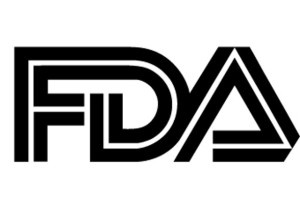Report: FDA Lacks Sufficient Data Regarding Drug Safety
 The U.S. Government Accountability Office (GAO) has released a report to the Subcommittee on Labor, Health, and Human Services of the House of Representatives detailing what it calls “problems with (the FDA’s) postmarket safety data.” The GAO report claims that the FDA “lacks reliable, readily accessible data” for the systemic oversight of tracked safety issues and postmarket safety studies.
The U.S. Government Accountability Office (GAO) has released a report to the Subcommittee on Labor, Health, and Human Services of the House of Representatives detailing what it calls “problems with (the FDA’s) postmarket safety data.” The GAO report claims that the FDA “lacks reliable, readily accessible data” for the systemic oversight of tracked safety issues and postmarket safety studies.
In plain English, this means the FDA isn’t able to effectively track whether drugs released into the stream of commerce have an acceptable safety profile for American patients. Specifically, the GAO calls into question the FDA’s fast track process and breakthrough drug designations, which are used by drug manufacturers to expedite the review of new medications.
The GAO’s findings and recommendations
In 1992, the Prescription Drug User Fee Act (PDUFA) gave the FDA the authority to create fast track programs, also known as expedited approval programs. Fast track programs were intended to bring critically needed drugs and medical devices to the market sooner. For example, these programs may give stage 4 cancer patients access to new, life-extending medications.
However, according to the GAO’s recently released report, fast track programs may increase the risk of compromised patient safety, given that the FDA reportedly lacks sufficient means of tracking postmarket safety issues and safety studies.
In the report, the GAO highlights the substantial percentage of approved drugs in fast track programs. From October 1, 2006 to December 31, 2014, the FDA received 772 requests for fast track designation. Of those, the FDA approved 525, or about two-thirds. Since the fiscal year 2011, the number of approved requests for fast track designation has increased substantially.
What this means for patients
Expedited approval programs are a matter of significant concern for patients because when a drug is fast tracked, clinical safety data may not be well established. Some critics of the fast track programs point out that before these programs were implemented, fewer drugs had to be pulled from the market because of safety problems and fewer black box warnings had to be added to drugs after they entered the stream of commerce.
In other words, patients taking a brand new drug may not necessarily have all the information they need to make a safety-conscious decision.
Lawsuits regarding Actos, Xarelto and Risperdal
Some of the drugs that have entered the stream of commerce via a fast track program include Actos, Xarelto, and Risperdal, all of which have been at the heart of numerous lawsuits filed by patients who claim that they were not sufficiently warned of the serious risks of the drugs.
Some of these complications may be life-threatening. For example, Actos has been alleged to increase the risk of bladder cancer in diabetes patients.
Xarelto is a medication intended to decrease the risk of stroke by reducing blood clot formation. Yet, plaintiffs claim that the drug is unreasonably dangerous because it can lead to uncontrollable bleeding events, which may be life-threatening.
Hundreds of male patients have filed Risperdal lawsuits claiming that the antipsychotic medication caused gynecomastia, which is the abnormal growth of breast tissue in males.
- United States Government Accountability Office, FDA Expedites Many Applications, But Data for Postapproval Oversight Need Improvement, http://www.gao.gov/assets/680/674183.pdf
- The Star, Fast-tracked new drugs more dangerous, study finds, http://www.thestar.com/news/investigations/2012/10/08/fasttracked_new_drugs_more_dangerous_study_finds.html


 Resources
Resources
 Resources
Resources
